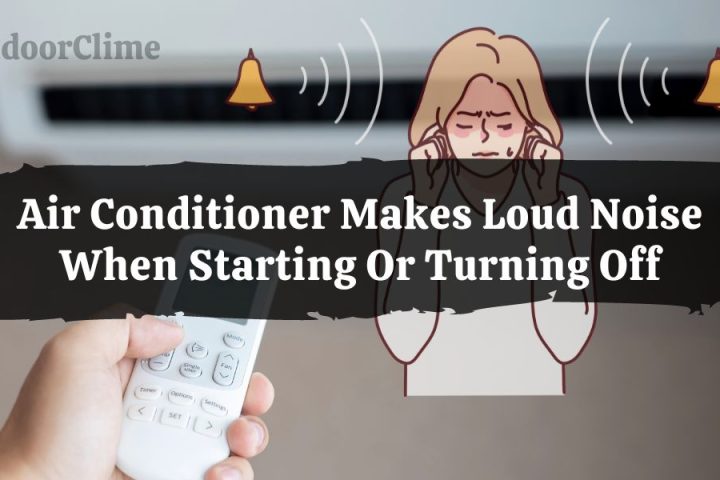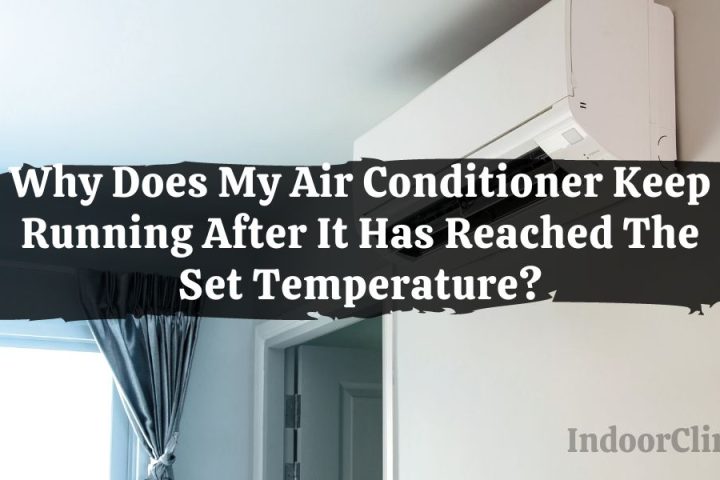Air conditioning units are essential for efficient cooling but can also be costly. The primary step is determining how many watts the unit uses and estimating its costs per Kwh.
AC appliances use a lot of electricity—which means they cost you a lot of money monthly. This handy chart shows precisely how much energy or kWh (kilowatt-hours) costs you.
In this article, we’ll dive into how many watts it takes to run an air conditioner, so you can ensure your house runs smoothly and efficiently.
The power consumption of a central air conditioner unit varies depending on how cold you set the temperature, what the humidity is, and how many hours a day it runs. A central air conditioner can require up to 3,000 watts per hour.
How Many Watts Does An Air Conditioner Consume?
If your AC runs a fan-only mode, it consumes around 750 watts each hour. Unfortunately, most ACs only run this way when turned on and then switched to full-blown cooling mode.
The excellent source is that you can save energy by changing your thermostat to the fan-only way or leaving it off altogether.
Large AC units consume about 4,100 watts hourly. These are typically central air conditioning units with five tons or more capacity.
Remember that you’ll pay for this extra power in your electricity bill. If your house is smaller than 2,500 square feet, you may be able to save energy and money by switching to a smaller unit.
The average central air conditioning unit can use 3,000 watts per hour. Mid-sized air conditioners use 2,900 watts each hour.
3 Ways to Determine How Many Watts Your Air Conditioner Use
- Check the specification sheet for Watts- the Watts rating tells you how many watts your air conditioner uses per hour.
- Check the specification sheet for Amperes and Volts – calculate how many watts your air conditioner uses by multiplying Amperes by Volts.
- Use BTU and EER ratings – calculate how much power your AC uses
BTU and EER ratings can be found in most ACs’ owners’ manuals or spec sheets. EER stands for energy efficiency ratio and indicates how effectively a cooling system uses power to do its job.
CEER stands for Combined Energy Efficiency Ratio and ranges from 0.0 to 20.0.
The wattage rating of a BTU air conditioner depends on the unit’s Energy Efficiency Ratio (EER). The EER measures how efficiently the AC unit converts electricity into cooling power. The higher the EER number, the more efficiently the unit operates and consumes less energy.
Formula: Capacity (BTU) ÷ CEER (or EER) = Watts
Calculating the Cost of Window Air Conditioners
It’s easy to calculate how much it costs to run an air conditioner, but the calculation depends on three variables:
- The wattage of the air conditioner.
- Your electric company’s kilowatts per hour (kWh) rate. (Nationally, the average is $0.13.)
- The number of hours per day you intend to run the air conditioner.
Cost Formula
Watts x 1 (no. hours of use) ÷ 1,000 x 0.13 (kWH) = hourly cost of operation
For Example:
- 520 watt unit x 1 hour ÷ 1,000 x 0.13 (kWH) = $0.067 hourly cost of operation
- $0.067 x 8 hours per day = $0.536 daily cost of operation
How many watts does a 5500 BTU AC use?

Assuming your AC unit has a minimum EER rating of 9, a 5,000 BTU air conditioner uses 555.55 watts per hour. But, of course, you can get significantly more efficient performance with a higher grade.
In this case: 5500 (BTU) / 9 EER = 555.55 watts
Cost of Electricity per Day/Month
555.55 (Watts) x 1 hour ÷ 1000 x 0.13 (Kwh) = $0.072 hourly cost of operation
$0.072 x 8 (no. of hours per day) = $0.577
$0.577 x 30 days = $17.33 per month
How many watts does a 6000 BTU AC use?

If you decided to buy an AC unit with an EER of 12 with 6000 BTUs, you’d get 600 Watts/hour.
In this case: 6000 (BTU) / 12 EER = 600 watts
Cost of Electricity per Day/Month
600 (Watts) x 1 hour ÷ 1000 x 0.13 (Kwh) = $0.078 hourly cost of operation
$0.078 x 8 (no. of hours per day) = $0.624
$0.624 x 30 days = $18.71 per month
How many watts does an 8000 BTU AC use?

When you purchase an 8000 BTUs model unit that has features of EER 9, you will receive 888.88 Watts/hour.
In this case: 8000 (BTU) / 9 EER = 888.88 watts
888.88 (Watts) x 1 hour ÷ 1000 x 0.13 (Kwh) = $0.115 hourly cost of operation
$0.115 x 8 (no. of hours per day) = $0.924
$0.924 x 30 days = $27.73 per month
How many watts does a 10000 BTU AC use?

If you possess an AC unit of 10,000 BTU with an EER of 9, you will obtain 1,111 Watts/hour.
In this case: 10,000 (BTU) / 9 EER = 1,111.11 watts
Cost of Electricity per Day/Month
1,111.11 (Watts) x 1 hour ÷ 1000 x 0.13 (Kwh) = $0.144 hourly cost of operation
$0.144 x 8 (no. of hours per day) = $1.152
$1.152 x 30 days = $34.56 per month
How many watts does a 12000 BTU AC use?

If you invested in a 12,000 BTU unit acquiring a CEER of 10, you would gain 1,200 Watts/hour.
In this case: 12,000 (BTU) / 10 EER = 1,200 watts
Cost of Electricity per Day/Month
1,200 (Watts) x 1 hour ÷ 1000 x 0.13 (Kwh) = $0.156 hourly cost of operation
$0.156 x 8 (no. of hours per day) = $1.248
$1.248 x 30 days = $37.44 per month
How many watts does a 15500 BTU AC use?

Having a 15,000 BTU unit with a model feature of 9 EER, you will have 1,666 Watts/hour.
In this case: 15,000 (BTU) / 9 EER = 1,666.66 watts
Cost of Electricity per Day/Month
1,666.66 (Watts) x 1 hour ÷ 1000 x 0.13 (Kwh) = $0.216 hourly cost of operation
$0.216 x 8 (no. of hours per day) = $1.733
$1.733 x 30 days = $51.99 per month
How many watts does an 18000 BTU AC use?
If you bargain for an 18,000 BTU unit with an EER of 10, you will obtain 1,800 Watts/hour.
In this case: 18,000 (BTU) / 10 EER = 1,800 watts
Cost of Electricity per Day/Month
1,800 (Watts) x 1 hour ÷ 1000 x 0.13 (Kwh) = $0.234 hourly cost of operation
$0.234 x 8 (no. of hours per day) = $1.872
$1.872 x 30 days = $56.16 per month
BTU and Wattage Summary
- 5500 BTU = 417 to 625 W
- 6000 BTU = 500 to 750 W
- 8000 BTU = 667 to 1000 W
- 10000 BTU = 833 to 1250 W
- 12000 BTU = 1000 to 1500 W
- 15500 BTU = 1250 to 1875 W
- 18000 BTU = 1500 to 2250 W
How Many Watts Does A Window AC Use?

The wattage of every kind of unit will be different, and the wattage within a class can also vary from model to model.
- A window AC unit will usually use between 500 and 1440 Watts.
- Small window AC unit, it’s possible that its power consumption could be as low as 500 Watts.
- Most medium-sized models will consume more than 900 Watts.
- Large AC units may draw up to 1440 Watts of power.
How Many Watts Does A Portable AC Use?
Portable AC units, on average, use more watts than other air conditioning units because they have a lower energy efficiency ratio (EER).
The average EER rating for a portable air conditioner unit is 8.5. Therefore, it must use about 15% more watts than a window air conditioner unit with the same output. Most portable AC units range from 940 watts to 1,650 watts.
Portable AC units also tend to be heavier and bulkier than other AC units, which affects their effectiveness and wattage.
Therefore, it’s essential to look at the efficiency ratings for your portable AC before buying it to understand how much wattage it will need to run effectively.
How Many Watts Do Mini Split Air Conditioners Use?
Ductless air conditioning systems, also known as mini-split air conditioners, are a great way to provide cooling power to areas of your home that have historically been difficult to air condition.
They use about 500 to 700 watts of electricity per zone, and depending on the model you get, they can have up to four zones.
Mini-split air conditioning systems are a good option if you want powerful cooling in a particular area of your home that is hard to reach with central air conditioning.
How to Track the Watt Usage of Your Air Conditioner?

Using a kill-a-watt meter is the best way to find out the watt usage of your AC unit without relying on estimates.
What Is a Kill-A-Watt Meter?
A kill-a-watt meter is a device used to measure household electrical devices’ power consumption.
Kill A Watt Electricity Usage Monitor
Connect your AC plug to the kill-a-watt meter, plug the device into your wall socket, and switch on your AC to calculate AC power use.
Then turn on the air conditioner to monitor how much kWh (units) of electricity your air conditioner uses in real-time.
Factors That Influence Air Conditioner Electricity Usage
Regarding your electricity bill, certain factors will cause an increase in AC electricity usage. These include:
- Having an older model – The newer models are designed to be energy efficient and use less power than their predecessors.
- Size of the unit – The more significant the unit, the greater its cooling requirements.
- Type of unit – A standard AC should have around a 13 to 14 SEER rating. Anything less than this would be considered inefficient and may cost more on your electricity bill.
- The temperature in your region – The hotter your area is, the more you need to run your AC system, resulting in a higher electricity bill.
- Several people in the house – If more people live at home, more people will use up energy from the AC system.
- Electrical appliances in your house – When many machines are running at once, it will take up more energy, causing an increased electricity usage for both items.
What Causes Air Conditioners to Increase Their Watt Usage?
Any of these problems will cause your system to use more power to keep up with the cooling needs of your home.
Some of the most common validations for increased watt usage include the following:
- Dirty Air Filter – If you haven’t changed your air filter in a while, it will get clogged with dirt and debris, making your air conditioner work harder to cool your house.
- Duct Leaks – Leaky ductwork means the cool air produced by your air conditioner leaks into the attic or elsewhere instead of cooling your home.
- Failing Parts (Motors, Capacitors, etc.) – Like any other machine, parts can wear out over time and need replacing. A failing motor or capacitor will drain more energy from the system and cause higher electric bills.
- Refrigerant levels – that are too low can impact the efficiency of an air conditioner and lead to higher power usage.
- Lack of maintenance – can result in higher power usage and potential damage to your unit. An annual inspection and cleaning should help prevent this issue from occurring.
How to Reduce Your Air Conditioning Energy Bills?
Here are the tips on how to reduce your energy bills by installing and maintaining your AC correctly:
- Replace an inefficient air conditioner with a more energy-efficient model if you have an older one.
- During the hot summer days, keep your windows and doors closed. Keep the cool air in, which will require less energy.
- Avoid running the AC continuously by setting the thermostat to 78 degrees or above at home.
- Close the cabinets in your house as they create pockets of dead space, making it harder for the AC to do its job.
- Plan for annual AC maintenance to keep the unit running efficiently and effectively through the hottest summer months.
- Assure that you choose an AC that is right for your house size so that it can cool the entire space without wasting too much energy.
People Also Ask
Can I run my AC with a generator?
Yes, you can. A generator can power any window air conditioning unit.
A portable generator is typically rated for many watts (W). For example, a homeowner’s typical portable generator for emergency use might be rated 4000 to 7500 W, whereas whole-house standby models typically are rated 25,000 W or higher.
The rating of the generator determines how much power it will supply. So if your air conditioner has a high wattage requirement, such as 1800 W, you’d need at least that much from your generator to power it up.
How many watts of generator do I need to run my AC?
If you want to run your air conditioner using a generator, you’ll need at least 4,000 power. Small window units require at least 1,600 watts of power, and most generators are designed to run at maximum capacity for only half an hour.
Air conditioners use A LOT of power, so running one will take up most or all of the energy your generator can supply. Unfortunately, you likely won’t be able to run anything else simultaneously.
How many watts does a 1.5 hp air conditioner use?
Capacity Average Wattage Average Power Consumption
1.5HP 1,231W 1.231 Kw/h
Kilowatts (kW) and horsepower (hp) are both power units and converting between them requires multiplication by a conversion factor. For example, one kilowatt equals 1.337 horsepower, and one horsepower = 0.7457 kW.
However, neither unit validly indicates an air conditioner’s cooling capacity because neither considers the refrigeration system’s efficiency.
An air conditioner rated at 1.5 hp has a power of 1.12 kW (1.5 hp x 0.7457 kW/hp).
Will a 4000-watt generator run central air?
A 4,000–4,300 operating watts generator should be sufficient to operate a modest RV air conditioner (11000 BTU) without difficulty.
A 4000-watt generator can power nearly all household appliances, including a refrigerator, washing machine, water pump, lighting, and classic energy hogs like an electric water heater or well pump.
Starting and maintaining these air conditioners usually take a large quantity of energy. Therefore, a generator with a 2000-4000 watts capacity is required to power the average RV air conditioner.
Will a 7500-watt generator run central air?
In most homes, you can efficiently operate all necessary appliances with a 7500-watt generator if you eliminate anything that emits electric heat.
It’s possible that you won’t be able to run everything simultaneously. Depending on how much electricity such gadgets use, you may need to disconnect some to operate others.






